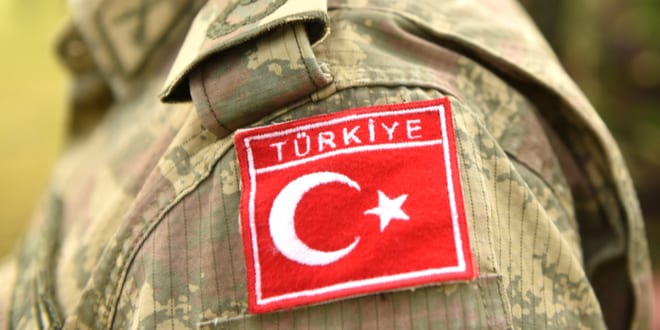Middle East Forum Judith Friedman Rosen Fellow Raymond Ibrahim‘s recent article about the Turkish television series Barbaros: Sword of the Mediterranean drew a heated response from Ahmet N. Taspinar. It appears below, followed by Mr. Ibrahim’s rebuttal.
Taspinar Response to Ibrahim
The article by Mr. Ibrahim, calling the four Barbarossa brothers terrorists and rapists came to my mailbox recently. I see it as just another underhanded attempt to blame Turks and Muslims for things that happened 500 years ago, at a time when piracy, murder and plunder were very much on the agenda of many respectable Christian sailors and soldiers as well.
“Piracy, murder and plunder were very much on the agenda of many respectable Christian sailors.”
It was the age of conquests that provided economic prosperity to the strong, at the expense of weaker and more prosperous people. The collective conscience that rules our global relations and our compassion today was not in effect at that time. To the victor belonged the spoils, and victors came from both religions.
The Barbarossa brothers were the sons of an Ottoman commander in the army that invaded the island of Lesbos and a local Greek girl who married the commander. They all had red beards, hence the title Barbarossa. Their names were Ishak (Isaac), Oruc, Hizir, and Ilyas (Elias). Oruc led his two younger brothers into piracy, an accepted, if not totally legitimate, venture in Homer’s “wine-dark sea,” the Aegean. They concentrated on hitting Christian ships, much as the Christian pirates were hitting Muslim ships.
The brothers built a fleet that contained some Christian Greeks; it was the way to earn a living for the people of the Aegean in those days. The place I grew up on the Asian side of Istanbul was named Kalamis, a Greek name, with a Greek Orthodox church that still stands today. It had been built by a Greek crew member of the Barbarossa pirates; he probably built it in repentance for his sins against his fellow Christians.
The Barbarossa brothers grew in influence and power and invaded North Africa to set up their independent state. Oruc and Ilyas were killed in a battle with the Spanish, but Hizir survived to become even more powerful, and set sail with dozens of ships to Constantinople to present his fleet and his domain to Ottoman Sultan Suleiman the Magnificent, who led the most powerful empire of the day. Suleiman took the gift and made Hizir the Grand Admiral of the Ottoman fleet, which ruled the eastern Mediterranean for 250 years.
Plunder was the way to make a living in those days, but rape and terrorism are undeserved allegations that Mr. Ibrahim must have decided to employ to add some color to his article.
Ahmet N. Taspinar
Istanbul, Turkey and Oakland, CA
Ibrahim Response to Taspinar
In his response to my recent article, Ahmet N. Taspinar sets up and attempts to knock down a straw horse that I never rode in on. My article was critical about the fact that modern day Turks—up to their president—tend to celebrate Muslim “heroes” from the past whose claim to fame revolved around their jihadist (read: unprovoked terrorist) attacks on non-Muslims, infidels.
Instead, Taspinar proceeds as if my argument is about condemning the Muslim heroes of history themselves, in this case the Barbarossa brothers, notorious pirates who terrorized the European coastline. In so doing, not only does he ignore my actual point—that modern day Turks are making heroes of these pirates—but, worse, he fails to knock down his own straw horse.
Taspinar claims that piracy was “an accepted, if not totally legitimate, venture in Homer’s wine dark sea, the Aegean. They concentrated on hitting christian ships, much as the christian pirates were hitting moslem ships.” Indeed, “piracy, murder and plunder was very much on the agenda of many respectable christian sailors and soldiers as well.”
So it was a tit for tat, one that apparently everyone participated in. Yet Taspinar fails to mention what the conflict was about: Turks and their Muslim allies trying to do what Muslims had done since the dawn of Islam—plunder, conquer, and eventually expand into non-Muslim territory, in this case, the Balkans by land, and the European coastlands by sea; and the Christians were trying to defend themselves, including by fighting fire with fire.
“Christians were trying to defend themselves, including by fighting fire with fire.”
In other words, the entire phenomenon of Christian corsairs targeting Muslims—an occupation primarily if not exclusively limited to the Knights of Saint John (Hospitallers) stationed in Malta—was retaliatory. As historian Robert C. Davis explains in his Christian Slaves, Muslim Masters, slaving around the Mediterranean was “a prevalently Muslim phenomenon.”
Consider the numbers alone. According to Piracy and Law in the Ottoman Mediterranean, by Joshua M. White, “Over the course of the seventeenth and eighteenth centuries, at least thirty-five thousand to forty thousand [Muslim] slaves passed through Malta.” Compare this with Davis’s statistics during roughly the same timeframe: “between 1530 and 1780 there were almost certainly a million and quite possibly as many as a million and a quarter white European Christians enslaved by the Muslims of the Barbary Coast.”
Based on these numbers—which do not include those many millions of slaves sent directly to Ottoman territory or enslaved by the Tatars— approximately 30 Christians were enslaved for every one Muslim enslaved. Not quite the tit for tat that Taspinar would suggest. Clearly the Christians were not as adept at piracy as their Islamic counterparts.
“Plunder was the way to make a living in those days,” Taspinar continues in his determined attempt to normalize and universalize piracy, before adding, “but rape and terrorism are undeserved allegations that Mr. Ibrahim must have decided to employ to add some color to his article.” Alas, I don’t know how else succinctly to characterize centuries of Muslims raiding and torching Christian coastlands, sadistically mutilating and massacring the males, as the Barbarossa brothers were notorious for, before absconding with their women and children, but as “rape and terrorism.”
Back, however, to the point of my original article, which was not to criticize the Muslim pirates as doing something historically unprecedented, but their modern day Turkish fans for celebrating their exploits. This, Taspinar seems to deny, writing, “The collective conscience that rules our global relations and our compassion today was not in effect at that time.”
To this I respond (or rather reiterate): If Turks are now ruled by a “collective conscience” rooted in “our global relations and our compassion today,” why are they still celebrating terrorists, slavers, and rapists—all men who justified their sordid activities in the name of religion?
Reprinted with author’s permission from Raymond Ibrahim





